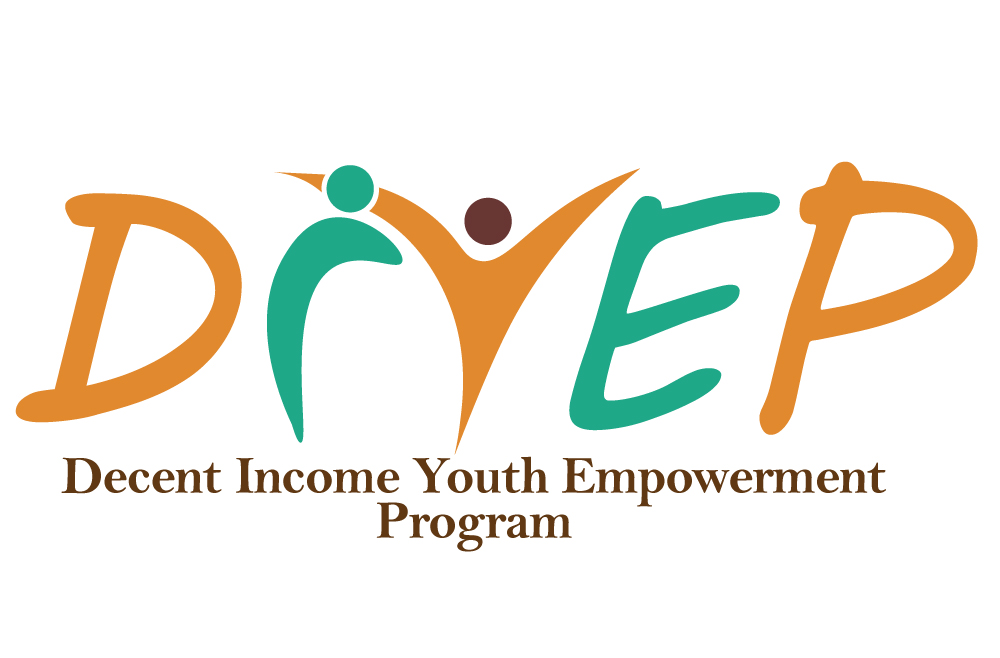DIYEP

Decent Income Youth Empowerment Program (DIYEP) seeks to support unemployed youth, especially girls, with entrepreneurship and employability skills as well as providing them with gender-based violence awareness and rights education
Mathare is the second largest informal settlement in Kenya having population of approximately 68,941 persons living within a square kilometre in contrast to the national average of a paltry 82 persons per square kilometre according to the National Housing and Population Census (2019).
This settlement is characterized by poor access to social amenities like health, education, economic empowerment and things even get worse with pandemics, for example, the COVID-19 situation in the world as reported by a case study done in Mathare by the UN-Habitat in June, 2020.
According to PaaMoja’s Mathare Youth Livelihood Gender Gaps Situational Analysis 2022 Report, in spite of Kenya’s progressive policy, legal frameworks and governance structures, male youth participate more in the labor force; they earn more than women, and they have greater opportunities to participate in the formal economy and political sphere. These disparities are due in part to unequal gender norms, which are reflected in the social, economic, and political institutions (formal and informal) that shape how women and girls experience gender bias and discrimination throughout their lives.
Women tend to be poorer than men and have less access to the capital and assets necessary for realizing their greatest potential. Although there is near gender parity in elementary education, differences persist in educational attainment across regions, including in higher education, especially in science, technology, engineering, and math (STEM). Acute health risks for women and girls include teen pregnancies, HIV/AIDS, and GBV (including FGM).
In addition, various reports by most renowned entities like UN Habitat: Case study of Mathare slum mapping Report 2020, USAID: Final Gender Report 2020 and University of Nairobi Department of Sociology: Social and Economic constraints affecting households in Mathare slums are a great sign and confirmation of an existing gender gap in Mathare youths that PaaMoja and its strategic partners seek to fill.
Due to the findings mentioned above, PaaMoja Initiative was compelled to conduct its own survey to assess the youth livelihood gender gaps situation in Mathare Slums and it was indeed concluded that there’s much to do in order to ensure that poverty is eradicated and homes have all that they need in order to bridge the gender economic gap. It was also established that most homes in Mathare are led by young women as most young men are dead after being executed by trigger-happy police, lost in drugs, alcoholism and depression. Supporting PaaMoja’s argument is USAID’s report, that states that, Chronic poverty is pervasive with more than one-third of the population living under the female-headed households are more likely to be poor compared to male-headed ones. This explains why eradicating poverty in Mathare will have to start with considering programs that bring these women on board without leaving the men behind.
PaaMoja has been working in Mathare for the last 9 years on different community engagement initiatives. The mission of PaaMoja is to positively impact the day-to-day lifestyles of people living within the sprawling slums of Mathare Valley and its neighbourhoods. Our activities focus on Sexuality, Leadership, and Life Skills, and aim to improve knowledge, strengthen awareness, and empower Mathare’s residents to make smart lifestyle choices related to these topics.
The proposed Decent Income Youth Empowerment Project (DIYEP) therefore seeks to usher vulnerable and unemployed youths of the ages between 18-24 years in curbing the livelihood gender gaps through digital skills training (software development, coding and marketing), capacity building and entrepreneurship development that will lead the youth into changing careers and tap into current remote working linkages.
This project is to be implemented within a period of 6 months. The project is aimed at offering safe spaces for individuals to find security in having a voice on issues that affect their mental and physical stability especially for those that have gone through different forms of abuse within Mathare. This project will as well open up a platform for the beneficiaries to get employable skills and financial empowerment in terms of savings, investments and entrepreneurship.
The project will help the vulnerable youth navigate the virtual world and explore opportunities that are available in metaverse. With the training gained from employability skills and digital training skills, they will have an opportunity to access more employment opportunities. To bridge the gender disparity noted in the livelihood gender gaps SITAN report, the project will involve 70 percent women and 30 percent men.
This project aims also in opening their eyes to the available opportunities outside Mathare to support their lives without involvement of crime, alcoholism, prostitution or other hideous means.


